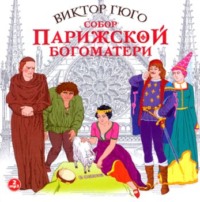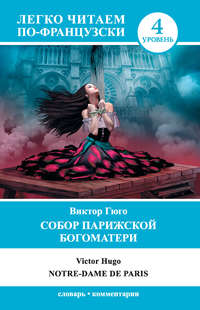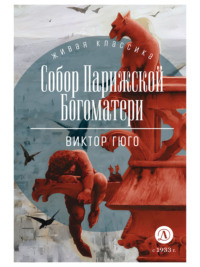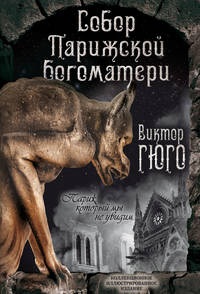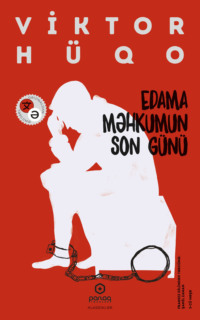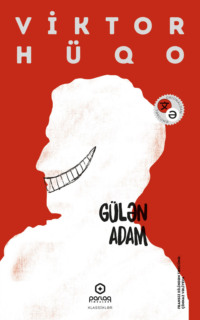 полная версия
полная версияLes Misérables, v. 4
CHAPTER II
AN OWL'S-EYE VIEW OF PARIS
Any being hovering over Paris at this moment, with the wings of a bat or an owl, would have had a gloomy spectacle under his eyes. The entire old district of the markets, which is like a city within a city, which is traversed by the Rues St. Denis and St. Martin, and by a thousand lanes which the insurgents had converted into their redoubt and arsenal, would have appeared like an enormous black hole dug in the centre of Paris. Here the eye settled on an abyss, and, owing to the broken lamps and the closed shutters, all brilliancy, life, noise, and movement had ceased in it. The invisible police of the revolt were watching everywhere and maintaining order, that is to say, night. To hide the small number in a vast obscurity, and to multiply each combatant by the possibilities which this obscurity contains, this is the necessary tactics of insurrection, and at nightfall every window in which a candle gleamed received a bullet; the light was extinguished, and sometimes the occupant killed. Hence, nothing stirred; there was nought but terror, mourning, and stupor in the houses, and in the streets a sort of sacred horror. Not even the long rows of windows and floors, the network of chimneys and roofs, and the vague reflections which glisten on the muddy and damp pavement, could be perceived. The eye which had looked down from above on this mass of shadow might perhaps have noticed here and there indistinct gleams, which made the broken and strange lines, and the profile of singular buildings, stand out, something like flashes flitting through ruins; at such spots were the barricades. The rest was a lake of darkness and mystery, oppressive and funereal, above which motionless and mournful outlines rose, – the Tower of St. Jacques, St. Merry church, and two or three other of those grand edifices of which man makes giants and night phantoms. All around this deserted and alarming labyrinth, in those districts where the circulation of Paris was not stopped, and where a few lamps glistened, the aerial observer would have distinguished the metallic scintillation of bayonets, the dull rolling of artillery, and the buzz of silent battalions which was augmented every moment; it was a formidable belt, slowly contracting and closing in on the revolt.
The invested district was now but a species of monstrous cavern; everything seemed there asleep or motionless, and, as we have seen, each of the streets by which it could be approached only offered darkness. It was a stern darkness, full of snares, full of unknown and formidable collisions, into which it was terrifying to penetrate and horrible to remain, where those who entered shuddered before those who awaited them, and those who awaited shuddered before those who were about to come. Invisible combatants were intrenched at the corner of every street, like sepulchral traps hidden in the thickness of the night. It was all over; no other light could be hoped for there henceforth save the flash of musketry, no other meeting than the sudden and rapid apparition of death. Where, how, when, they did not know, but it was certain and inevitable: there, in the spot marked out for the contest, the Government and the insurrection, the National Guards and the popular society, the bourgeoisie and the rioters, were about to grope their way toward one another. There was the same necessity for both sides, and the only issue henceforth possible was to be killed or conquer. It was such an extreme situation, such a powerful obscurity, that the most timid felt resolute and the most daring terrified. On both sides, however, there was equal fury, obstinacy, and determination; on one side advancing was death, and no one dreamed of recoiling; on the other, remaining was death, and no one thought of flying. It was necessary that all should be over by the morrow, that the victory should be with one side or the other, and the insurrection either become a revolution or a riot. The Government understood this as well as the partisans, and the smallest tradesman felt it. Hence came an agonizing thought with the impenetrable gloom of this district, where all was about to be decided; hence came a redoubled anxiety around this silence, whence a catastrophe was going to issue. Only one sound could be heard, – a sound as heart-rending as a death-rattle and as menacing as a male-diction, the tocsin of St. Merry. Nothing could be so chilling as the clamor of this distracted and despairing bell as it lamented in the darkness.
As often happens, nature seemed to have come to an understanding with what men were going to do, and nothing deranged the mournful harmonies of the whole scene. The stars had disappeared, and heavy clouds filled the entire horizon with their melancholy masses. There was a black sky over these dead streets, as if an intense pall were cast over the immense tomb. While a thoroughly political battle was preparing on the same site which had already witnessed so many revolutionary events, – while the youth, the secret associations, and the schools in the name of principles, and the middle classes in the name of interests, were coming together to try a final fall, – while everybody was hurrying up and appealing to the last and decisive hour of the crisis, in the distance and beyond that fatal district, at the lowest depths of the unfathomable cavities of that old wretched Paris which is disappearing under the splendor of happy and opulent Paris, the gloomy voice of the people could be heard hoarsely growling. It is a startling and sacred voice, composed of the yell of the brute and the word of God, which terrifies the weak and warns the wise, and which at once comes from below like the voice of the lion, and from above like the voice of thunder.
CHAPTER III
THE EXTREME BRINK
Marius had reached the markets; there all was calmer, darker, and even more motionless than in the neighboring streets. It seemed as if the frozen peace of the tomb had issued from the ground and spread over the sky. A ruddy tinge, however, brought out from the black background the tall roofs of the houses which barred the Rue de la Chanvrerie on the side of St. Eustache. It was the reflection of the torch burning on the Corinth barricade, and Marius walked toward that ruddy hue; it led him to the Marché aux Poirées, and he caught a glimpse of the Rue des Prêcheurs, into which he turned. The sentry of the insurgents watching at the other end did not notice him; he felt himself quite close to what he was seeking, and he walked on tiptoe. He thus reached the corner of that short piece of the Mondétour lane which was, as will be remembered, the sole communication which Enjolras had maintained with the outer world. At the corner of the last house on his left he stopped and peeped into the lane. A little beyond the dark corner formed by the lane and the Rue de la Chanvrerie, which formed a large patch of shadow in which he was himself buried, he noticed a little light on the pavement, a portion of a wine-shop, a lamp flickering in a sort of shapeless niche, and men crouching down with guns on their knees, – all this was scarce ten yards from him, and was the interior of the barricade. The houses that lined the right-hand side of the lane hid from him the rest of the wine-shop, the large barricade, and the flag. Marius had but one step to take, and then the unhappy young man sat down on a post, folded his arms, and thought of his father.
He thought of that heroic Colonel Pontmercy, who had been such a proud soldier, who had defended under the Republic the frontier of France, and touched under the Empire the frontier of Asia; who had seen Genoa, Alexandria, Milan, Turin, Madrid, Vienna, Dresden, Berlin, and Moscow; who had left on all the victorious battle-fields of Europe drops of the same blood which Marius had in his veins; who had grown gray before age in discipline and command; who had lived with his waist-belt buckled, his epaulettes falling on his chest, his cockade blackened by smoke, his brow wrinkled by his helmet, in barracks, in camp, in bivouacs, and in hospitals, and who, at the expiration of twenty years, had returned from the great wars with his scarred cheek and smiling face, simple, tranquil, admirable, pure as an infant, having done everything for France and nothing against her. He said to himself that his own day had now arrived, that his hour had at length struck, that after his father he too was going to be brave, intrepid, and bold, to rush to meet bullets, offer his chest to the bayonets, shed his blood, seek the enemy, seek death; that he in his turn was about to wage war and go into the battle-field, and that the battle he would enter was the street, and the war he was about to wage civil war! He saw civil war opening like a gulf before him, and that he was going to fell into it; then he shuddered.
He thought of his fathers sword, which his grandfather had sold to the old-clothes dealer, and which he had so painfully regretted. He said to himself that this valiant and chaste sword had done well to escape from him, and disappear angrily in the darkness; that it fled away thus because it was intelligent, and foresaw the future, – the riots, the war of gutters, the war of paving-stones, fusillades from cellar-traps, and blows dealt and received from behind; that, coming from Marengo and Austerlitz, it was unwilling to go to the Rue de la Chanvrerie, and after what it had done with the father refused to do that with the son! He said to himself that if that sword had been here, if, after receiving it at his dead fathers bedside, he had dared to take it, and carry it into this nocturnal combat between Frenchmen in the streets, it would assuredly have burned his hands, and have flashed before him like the glaive of the archangel! He said to himself that it was fortunate it was not there, but had disappeared, – that this was well, this was just, that his grandfather had been the true guardian of his fathers glory, and that it was better for the Colonel's sword to have been put up to auction, sold to the second-hand dealer, or broken up as old iron, than come to-day to make the flank of the country bleed. And then he began weeping bitterly. It was horrible, but what was he to do? He could not live without Cosette, and since she had departed all left him was to die. Had he not pledged her his word of honor that he would die? She had gone away knowing this, and it was plain that she was pleased with Marius's dying; and then it was clear that she no longer loved him, since she had gone away thus without warning him, without a word, without a letter, and yet she knew his address! Of what use was it to live; and why should he live now? And then, to have come so far and then recoil! to have approached the danger and run away! to have come to look at the barricade and then slip off! to slip off, trembling and saying, "After all, I have had enough of that I have seen it, that is sufficient; it is civil war, and I will be off!" To abandon his friends who expected him, who perhaps had need of him, who were a handful against an army! To be false to everything at once, – to love, to friendship, to his word! to give his poltroonery the pretext of patriotism! Oh, that was impossible, and if his father's phantom were there in the shadows, and saw him recoil, it would lash him with the flat of its sabre, and cry to him, "Forward, coward!"
A prey to this oscillation of his thoughts, he hung his head, but suddenly raised it again, for a species of splendid rectification had just taken place in his mind. There is a dilation of thought peculiar to the vicinity of the tomb; and to be near death makes a man see correctly. The vision of the action upon which he saw himself perhaps on the point of entering, no longer appeared to him lamentable, but superb; the street was become transfigured by some internal labor of the soul before his mental eye. All the tumultuous notes of interrogation of reverie crowded back upon him, but without troubling him, and he did not leave a single one unanswered. Why would his father be indignant? Are there not cases in which; insurrection attains to the dignity of duty? What was there degrading for the son of Colonel Pontmercy in the combat which was about to begin? It is no longer Montmirail or Champaubert, it is something else; it is no longer a question of a sacred territory, but of a holy idea. The country complains; be it so, but humanity applauds. Is it true, besides, that the country complains? France bleeds, but liberty smiles, and on seeing the smile of liberty France forgets her wound. And then, regarding things from a higher point still, what did people mean by talking of a civil war?
What is the meaning of civil war? Is there such a thing as a foreign war? Is not every war between men a war between brothers? War can only be qualified by its object, and there is neither foreign war nor civil war, there is only just or unjust war. Up to the day when the great human concordat is concluded, war, at least that which is the effort of the hurrying future against the laggard past, may be necessary. What reproach can be urged against such a war? War does not become a disgrace, or the sword a dagger, until it assassinates right, progress, reason, civilization, and truth. In such a case, whether civil war or foreign war, it is iniquitous, and is called crime. Beyond that holy thing justice, what right would one form of war have to despise another? By what right would the sword of Washington ignore the pike of Camille Desmoulins? Which is the greater, Leonidas contending against the foreigner, or Timoleon against the tyrant? One is the defender, the other is the liberator. Must we brand, without investigating the object, every taking up of arms in the interior of a city? If so, mark with contumely Brutus, Marcel, Arnould of Blankenheim, and Coligny. A war of thickets – a street war? Why not? Such was the war of Ambiorix, of Artevelde, of Marnix, and Pelagius. But Ambiorix struggled against Rome, Artevelde against France, Marnix against Spain, and Pelagius against the Moors, – all against the foreigner. Well, monarchy is the foreigner, oppression is the foreigner, divine right is the foreigner, and despotism violates the moral frontier as invasion does the geographical frontier. Expelling the tyrant or expelling the English is, in either case, a reconquest of territory. An hour arrives when a protest is insufficient; after philosophy, action is needed; living strength completes what the idea has sketched out: Prometheus vinctus begins, Aristogiton ends, the Encyclopædia enlightens minds, and August 10 electrifies them. After Æschylus, Thrasybulus; after Diderot, Danton. Multitudes have a tendency to accept the master, and their mass deposits apathy. A crowd is easily led into habits of obedience. These must be stirred up, impelled, and roughly treated by the very blessing of their deliverance, their eyes be hurt by the truth, and light hurled at them in terrible handfuls. They must themselves be to some extent thunderstruck by their own salvation, for such a dazzling awakes them. Hence comes the necessity of tocsins and wars: it is necessary that great combatants should rise, illumine nations by audacity, and shake up that sorry humanity over which divine right, Cæsarian glory, strength, fanaticism, irresponsible power, and absolute majesties cast a shadow, – a mob stupidly occupied in contemplating these gloomy triumphs of the night in their crepuscular splendor. But what? Whom are you talking of? Do you call Louis Philippe the tyrant? No; no more than Louis XVI. These are both what history is accustomed to call good kings; but principles cannot be broken up, the logic of truth is rectilinear, and its peculiarity to be deficient in complaining. No concession therefore; every encroachment on man must be repressed: there is the right divine in Louis XVI., there is the "because a Bourbon" in Louis Philippe; both represent to a certain extent the confiscation of right, and they must be combated in order to sweep away universal usurpation; it must be so, for France is always the one who begins, and when the master falls in France he falls everywhere. In a word, what cause is more just, and consequently what war is greater, than to re-establish social truth, give back its throne to liberty, restore the people to the people and the sovereignty to man, to replace the crown on the head of France, to restore reason and equity in their plenitude, to suppress every germ of antagonism by giving back individuality, to annihilate the obstacle which the royalty offers to the immense human concord, and to place the human race once again on a level with right? Such wars construct peace. An enormous fortalice of prejudice, privileges, superstitions, falsehoods, exactions, abuses, violences, iniquities, and darknesses, is still standing on the earth with its towers of hatred, and it must be thrown down, and the monstrous mass crumble away. To conquer at Austerlitz is great, but to take the Bastille is immense.
No one but will have noticed in himself that the mind – and this is the marvel of its unity complicated with ubiquity – has the strange aptitude of reasoning almost coldly in the most violent extremities, and it often happens that weird passions and deep despair, in the very agony of their blackest soliloquies, handle subjects and discuss theses. Logic is mingled with the convulsion, and the thread of syllogism runs without breaking through the storm of the thoughts: such was Marius's state of mind. While thinking thus, crushed but resolute, and yet hesitating and shuddering at what he was going to do, his eyes wandered about the interior of the barricade. The insurgents were conversing in whispers, without moving, and that almost silence which marks the last phase of expectation was perceptible. Above them, at a third-floor window, Marius distinguished a species of spectator or of witness who seemed singularly attentive; it was the porter killed by Le Cabuc. From below, this head could be vaguely perceived in the reflection of the torch burning on the barricade, and nothing was stranger in this dense and vacillating light than this motionless, livid, and amazed face, with its bristling hair, open and fixed eyes, and gaping mouth, bending over the street in an attitude of curiosity. It might be said that this dead man was contemplating those who were going to die. A long stream of blood, which had flowed from his head, descended from the window to the first-floor, where it stopped.
BOOK XIV
THE GRANDEUR OF DESPAIR
CHAPTER I
THE FLAG: ACT FIRST
Nothing came yet: it had struck ten by St. Merry's, and Enjolras and Combeferre were sitting musket in hand near the sally-port of the great barricade. They did not speak, but were listening, trying to catch the dullest and most remote sound of marching. Suddenly, in the midst of this lugubrious calm, a clear, young, gay voice, which seemed to come from the Rue St. Denis, burst forth, and began singing distinctly, to the old popular tune of "Au clair de la lune," these lines, terminating with a cry that resembled a cock-crow: —
"Mon nez est en larmes,Mon ami Bugeaud,Prêt'-moi tes gendarmesPour leur dire un mot.En capote bleue,La poule au shako,Voici la banlieue!Co-cocorico!"They shook hands.
"'T is Gavroche," said Enjolras.
"He is warning us," said Combeferre.
Hurried footsteps troubled the deserted streets, and a being more active than a clown was seen climbing over the omnibus, and Gavroche leaped into the square, out of breath, and saying, —
"My gun! Here they are!"
An electric shudder ran along the whole barricade, and the movement of hands seeking guns was heard.
"Will you have my carbine?" Enjolras asked the gamin.
"I want the big gun," Gavroche answered, and took Javert's musket.
Two sentries had fallen back and come in almost simultaneously with Gavroche; they were those from the end of the street and the Petite Truanderie. The vedette in the Lane des Prêcheurs remained at his post, which indicated that nothing was coming from the direction of the bridges and the markets. The Rue de la Chanvrerie, in which a few paving-stones were scarce visible in the reflection of the light cast on the flag, offered to the insurgents the aspect of a large black gate vaguely opened in a cloud of smoke. Every man proceeded to his post: forty-three insurgents, among whom were Enjolras, Combeferre, Courfeyrac, Bossuet, Joly, Bahorel, and Gavroche, knelt behind the great barricade, with the muzzles of their guns and carbines thrust out between the paving-stones as through loop-holes, attentive, silent, and ready to fire. Six, commanded by Feuilly, installed themselves at the upper windows of Corinth. Some minutes more elapsed, and then a measured, heavy tramp of many feet was distinctly heard from the direction of St. Leu; this noise, at first faint, then precise, and then heavy and re-echoing, approached slowly, without halt or interruption, and with a tranquil and terrible continuity. Nothing was audible but this; it was at once the silence and noise of the statute of the commendatore, but the stormy footfall had something enormous and multiple about it, which aroused the idea of a multitude at the same time as that of a spectre; you might have fancied that you heard the fearful statue Legion on the march. The tramp came nearer, nearer still, and then ceased; and the breathing of many men seemed to be audible at the end of the street. Nothing, however, was visible, though quite at the end in the thick gloom could be distinguished a multitude of metallic threads, fine as needles and almost imperceptible, which moved about like that indescribable phosphoric network which we perceive under our closed eyelids just at the moment when we are falling asleep. These were bayonets and musket-barrels on which the reflection of the torch confusedly fell. There was another pause, as if both sides were waiting. All at once a voice which was the more sinister because no one could be seen, and it seemed as if the darkness itself was speaking, shouted, "Who goes there?"
At the same time the click of muskets being cocked could be heard. Enjolras replied with a sonorous and haughty accent, —
"French Revolution!"
"Fire!" the voice commanded.
A flash lit up all the frontages in the street, as if the door of a furnace had been suddenly opened and shut, and a frightful shower of bullets hurled against the barricade, and the flag fell. The discharge had been so violent and dense that it cut the staff asunder, that is to say, the extreme point of the omnibus pole. Bullets ricochetting from the corners of the houses penetrated the barricade and wounded several men. The impression produced by this first discharge was chilling; the attack was rude, and of a nature to make the boldest think. It was plain that they had to do with a whole regiment at the least.
"Comrades," Courfeyrac cried, "let us not waste our powder, but wait till they have entered the street before returning their fire."
"And before all," Enjolras said, "let us hoist the flag again!"
He picked up the flag, which had fallen at his feet: outside, the ring of ramrods in barrels could be heard; the troops were reloading. Enjolras continued, —
"Who has a brave heart among us? Who will plant the flag on the barricade again?"
Not one replied; for to mount the barricade at this moment, when all the guns were doubtless again aimed at it, was simply death, and the bravest man hesitates to condemn himself. Enjolras even shuddered as he repeated, —
"Will no one offer?"
CHAPTER II
THE FLAG: ACT SECOND
Since the arrival at Corinth and the barricade had been begun no one paid any further attention to Father Mabœuf. M. Mabœuf, however, had not quitted the insurgents: he had gone into the ground-floor room of the wine-shop and seated himself behind the bar, where he was, so to speak, annihilated in himself. He seemed no longer to see or think. Courfeyrac and others had twice or thrice accosted him, warning him of the peril and begging him to withdraw, but he had not appeared to hear them. When no one was speaking to him his lips moved as if he were answering some one, and so soon as people addressed him his lips left off moving, and his eyes no longer seemed alive. A few hours before the barricade was attacked he had assumed a posture which he had not quitted since, with his two hands on his knees, and his head bent forward, as if he were looking into a precipice. Nothing could have drawn him out of this attitude, and it did not appear as if his mind were in the barricade. When every one else went to his post the only persons left in the room were Javert tied to the post, an insurgent with drawn sabre watching over Javert, and Mabœuf. At the moment of the attack, at the detonation, the physical shock affected and as it were awoke him; he suddenly rose, crossed the room, and at the moment when Enjolras repeated his appeal, "Does no one offer?" the old man was seen on the threshold of the wine-shop. His presence produced a species of commotion in the groups, and the cry was raised, —


